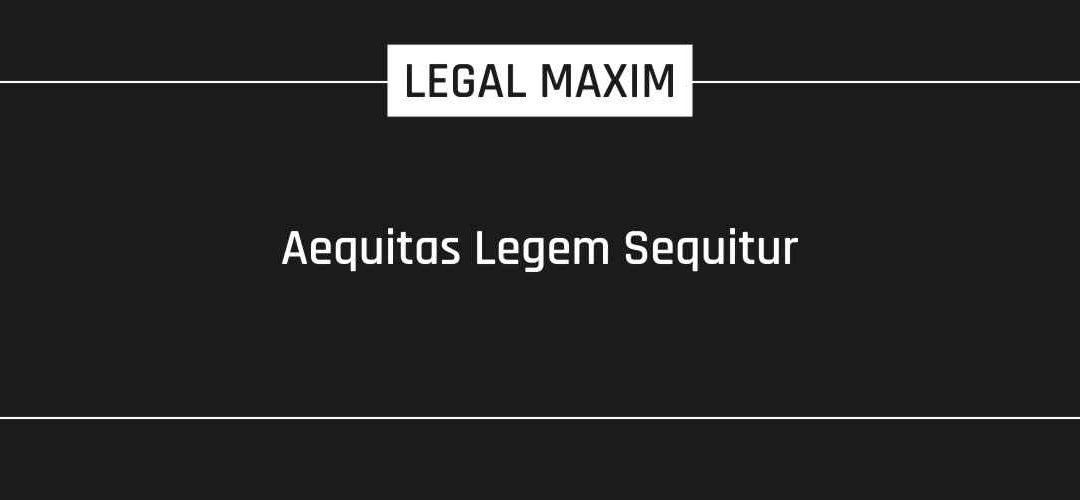Literal Meaning
Equity follows the law
Origin
Latin
Explanation
It is a concept that equity or the law will not aid a person or party who is at fault. The law will not aid a person whose own fault is what made the legal action necessary. It is interpreted as to law is about what is fair and equitable. It is a fundamental maxim, stated as that equity follows the law.
However, this maxim is susceptible to various interpretations.
- It may mean that equity adopts and follows the rules of law in all cases to which those rules may in terms be applicable; or
- It may mean that equity, in dealing with cases of an equitable nature, adopts and follows the analogies furnished by the rules of law.
The key objective of the concept appears to hold judicial conduct within the limits set by the preliminary course of adjudication, in accordance with the precepts that law must obey the rules and precedents developed, and should not alter or threaten the privileges specified and formed by current legal standards.
Instead of overruling the balance of justice, the essence of equity is something that supports, but it must always be reiterated that when the moment demands, equity may move against certain values in search of a fair outcome that the common law refuses to offer. Equity acts as a complement to the statute which will not supersede the rule that prevails so, therefore, we do not speak about common law and equity as two competing structures.
The maxim serves to keep the focus on legal proceedings in such a way that holds the principle of fairness above that of policy or written codes of conduct. It means equity looks at the form of the subject matter, rather than allowing the intention to dissolve in favor of caveats that work against common law, and obstruct a proper outcome.
Illustration
- Under a trust, although the beneficiaries are regarded as the equitable owners, equity does not deny the legal title of the trustee.
- Devolution of equitable interest on intestacy passes the same way as the legal estate.
Case Laws
In Anil Kumar Verma Son of Sri J.R. vs. the State of U.P. Through Principal, the Allahabad High Court held that “equity is not one-way traffic. Equity follows law following the maxim aequitas sequitur legem. In other words, it is moving on the periphery of law and when the law allows entering, forms a zygote.”
In Cowper vs. Cowper, the court held that the molding of new equitable interests so that they possessed most of the incidents of the corresponding legal estates is the best-known application of the maxim, acquitas sequitur legem.
